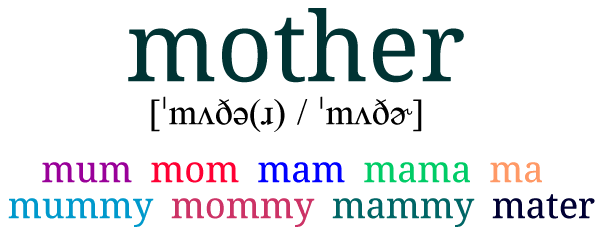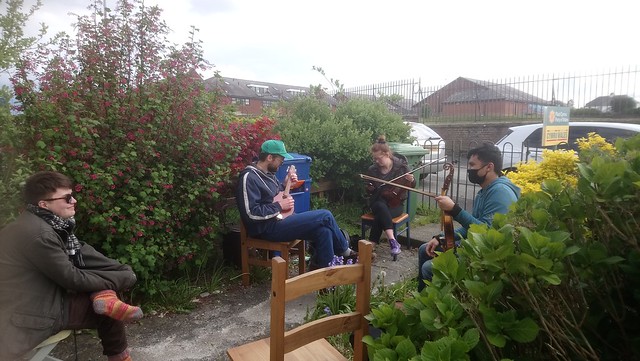Podcast: Play in new window | Download
As today is Mother’s Day in many countries around the world, though not here in the UK, we are looking at the origins of the word mother.

Mother comes from the Middle English moder [ˈmoːdər/ˈmoːðər], from the Old English mōdor [ˈmoː.dor], from the Proto-Germanic *mōdēr [ˈmɔː.ðɛːr], from Proto-Indo-European *méh₂tēr [source].
Words for mother in most Indo-European languages come from the same root, including moeder [ˈmu.dər] in Dutch, Mutter [ˈmʊtɐ] in German, and móðir [ˈmouːðɪr] in Icelandic [source].
Some related words include matriarch, matron, maternal, matrimony, material, matriculate, matrix and matter, all of which come ultimately from the Latin māter (mother, matron, woman, nurse) via French [source].
Here’s a video I made of this information:
Video made with Doodly – an easy-to-use animated video creator [affiliate link].
I also write about etymology on the Omniglot Blog.





